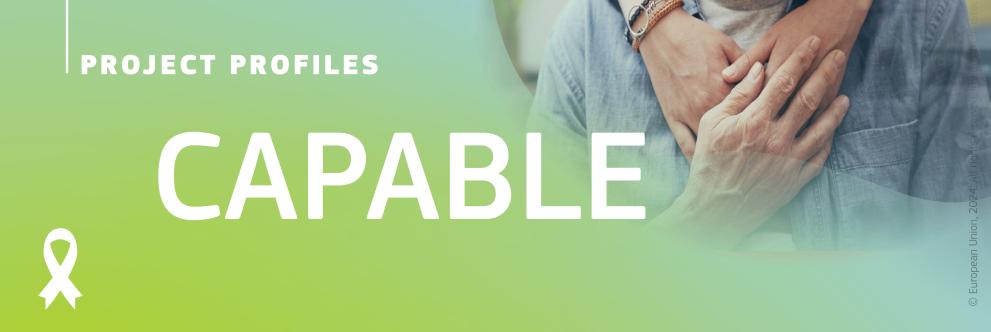
To mark the European Week Against Cancer, we spoke with Silvana Quaglini, bioengineering professor at University of Pavia in Italy. Professor Quaglini is the coordinator of the CAPABLE project, which aims to develop a coaching system for improving the quality of life of cancer home patients. The system will help to detect and manage cancer-related issues and address the corresponding needs of patients and their home caregivers.
What are the gaps in cancer care that the CAPABLE project seeks to address?
After the primary intervention, most cancer patients return home, where they face long-term treatments that make the disease comparable to a chronic condition. Despite their benefits, strong therapeutic regimens often cause toxicity, severely impairing quality of life.
Moreover, also due to age-related multimorbidity, patients and their caregivers develop emotional, educational and social needs. For example, for many it is difficult to return to work (at least full-time), which may increase the “financial toxicity” brought on by high medical expenses.
Another need, often unmet, is the multidisciplinary treatment that would simultaneously involve oncologists, psychologists, nutritional experts, and other healthcare professionals, reducing waiting times for patients and multiple visits to the hospital.
To face all this, CAPABLE has developed a telemonitoring system, composed of a cancer patient coaching system and a “smart dashboard” for clinicians, with the objective of tackling those issues and mitigating their effects on patients’ and caregivers’ quality of life.
How has your project contributed to improving the quality of life of cancer patients at home?
In order to improve patients’ and caregivers’ quality of life, we have developed two instruments for patients: a mobile app and a smartwatch.
The mobile app is mainly used to report side effects of treatments and other symptoms related to cancer, including those in the psychological sphere. The smartwatch measures some vital signs, such as heart rate, pulse transit time, oxygen saturation, mobility and sleep quality. On the other side, the medical team can view the information collected via those devices on a PC. The data, which is collected day by day, provide the team with useful information between control visits and help them detect early signs that may lead to a change in treatment and/or diet and/or to starting a psychological support programme.
The app also allows patients to receive alerts for taking prescribed medications and reminders for hospital appointments. It also helps to raise awareness about the disease and its consequences, providing educational material that can also be consulted in the form of quizzes.
What have been the key results/achievements?
Our results show that patients enrolled in the system developed by CAPABLE report a significantly improved quality of life, compared to patients treated according to the traditional routine, especially when it comes to the side effect of feeling fatigued. Preliminary results also show that a careful inspection of data from the smartwatch could predict the onset of some specific symptoms. In addition to quantitative results that show the system efficacy, we also have very positive feedback from patients, most of whom have asked to stay enrolled after the six-month study protocol.
What are the next steps in terms of building on these results / bringing various solutions and innovations into clinical settings?
We have prepared a demo version of the system, with the aim of allowing interested stakeholders and healthcare institutions to navigate the CAPABLE functionalities as a telemonitoring system.
Eventually, leveraging on the CAPABLE experience, we will apply for additional funding to exploit the system for different types of patients.
What do you hope the long-term legacy of this project will be?
We hope that the CAPABLE model will enter the clinical practice to improve the quality of life of a big number of cancer patients.
We have evidence that our model works for patients and their caregivers, and we can provide recommendations about the organisational adaptations that healthcare institutions need to make such telemonitoring systems successful.
Background
Horizon Europe is the research and innovation programme of the EU for the period 2021-2027.
The aims of Cluster 1 ‘Health’ include improving and protecting the health and wellbeing of citizens of all ages by generating new knowledge, developing innovative solutions and integrating where relevant a gender perspective to prevent, diagnose, monitor, treat and cure diseases.
Horizon 2020 (H2020) was the EU’s multiannual funding programme between 2014 and 2020.
Details
- Publication date
- 27 May 2024
- Author
- European Health and Digital Executive Agency
- Programme Sector
- Health
- Programme
- Horizon Europe
- Horizon Europe Cluster 1: Health
- Tags
- EUCancerPlan
- Medical research
- Scientific research



